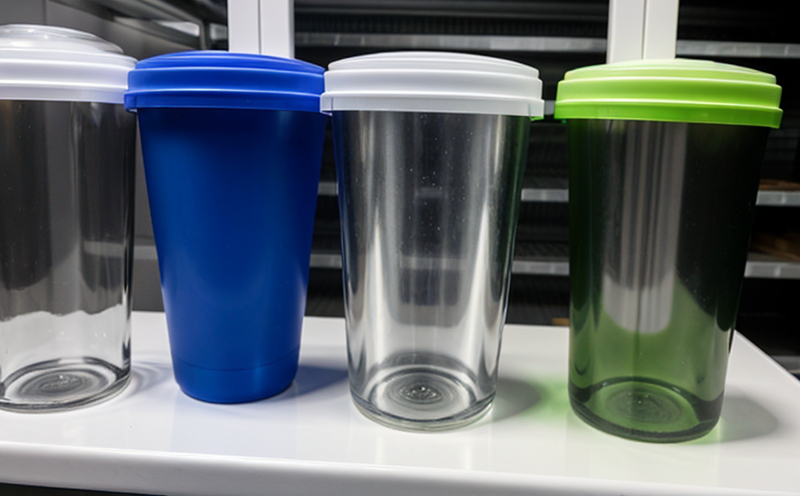ISO 719-4 Hardness Uniformity Testing
The ISO 719 series of standards is dedicated to the testing methods and practices applicable to glass containers. Among these, ISO 719-4:2018 focuses specifically on the measurement of hardness uniformity in glass packaging. This method is crucial for ensuring that glass containers meet quality specifications, which impacts not only their structural integrity but also their ability to withstand various environmental stresses during transport and storage.
The primary objective of this test is to ensure that there are no significant variations in the mechanical properties across different parts of a glass container. Variations can lead to potential weaknesses or defects that might compromise the product's performance. This testing method has widespread applications, particularly in sectors where high-quality glass packaging is essential, such as pharmaceuticals, food and beverage industries.
During ISO 719-4 hardness uniformity testing, a standardized indentation procedure is used. The test involves applying a specified load to the surface of the glass sample using a defined indenter (typically a sphere). The depth of the indentations made by this process is measured, and these measurements are then analyzed statistically to assess the homogeneity of the glass's mechanical properties.
The test setup typically includes:
- Indenter: A steel ball with a specific diameter
- Load application mechanism: Ensures consistent force application
- Microscope or optical measuring device for depth measurement
The specimen preparation for this test is critical. The glass container must be free from any defects that could affect the results, and its surface should be polished to ensure accurate indentation readings.
The test procedure involves several steps:
- Selection of a representative sample from the batch
- Cleaning and polishing the sample's surface
- Application of load at specified intervals across different locations on the container
- Measurement of indentation depth after each application
- Data analysis to calculate the variation in hardness uniformity
The results of this test are used by quality managers and compliance officers to ensure that the glass packaging meets stringent industry standards. The data from these tests can also be valuable for R&D engineers, helping them refine designs to improve both product performance and cost-efficiency.
Understanding the mechanical behavior of materials is crucial in ensuring safety and reliability in various applications. For instance, in pharmaceutical packaging, any variation in hardness could lead to leakage or damage during transit, which can compromise the integrity of the contained products. In food and beverage packaging, such variations might affect shelf life and consumer satisfaction.
The application of ISO 719-4 testing ensures that glass containers are not only robust but also uniform, contributing significantly to the overall quality control process in these sectors.
Applied Standards
| Standard | Description |
|---|---|
| ISO 719-4:2018 | Method for determining the hardness uniformity of glass containers |
The ISO 719 series includes other relevant standards, such as ISO 719-3, which deals with the determination of volume and wall thickness of glass containers. However, it is the ISO 719-4 standard that specifically addresses hardness uniformity.
These standards are essential for ensuring consistent quality across different batches of glass packaging. Compliance with these standards not only guarantees high-quality products but also helps in maintaining a reputation for reliability and safety within the industry.
Industry Applications
The application of ISO 719-4 hardness uniformity testing is particularly relevant in industries where glass packaging plays a critical role. These sectors include:
- Pharmaceuticals: Ensuring the integrity and safety of drug containers.
- Food and Beverage: Maintaining product quality and extending shelf life through robust packaging.
- Cosmetics: Protecting products from damage during transport and ensuring consumer satisfaction.
In each of these industries, glass packaging serves as the first line of defense against contamination and degradation. By adhering to ISO 719-4 testing protocols, manufacturers can ensure that their products meet the highest quality standards, thereby enhancing customer trust and satisfaction.
The results of this test are not only crucial for compliance but also provide valuable insights into the manufacturing process. They allow companies to identify areas where improvements can be made, ensuring continuous quality improvement.
Quality and Reliability Assurance
- Data accuracy: The precision of indentation depth measurements directly impacts the reliability of the test results.
- Environmental control: Maintaining consistent temperature and humidity levels during testing ensures accurate results.
- Instrument calibration: Regular calibration of instruments used in this test is essential to maintain accuracy.
The success of ISO 719-4 hardness uniformity testing relies heavily on these quality assurance measures. Ensuring that all factors contributing to the test are under strict control helps in producing reliable and repeatable results, which are critical for maintaining product consistency and quality.
These tests also play a vital role in identifying any inconsistencies in the manufacturing process. By pinpointing areas of non-uniformity, manufacturers can take corrective actions to improve their processes, thereby enhancing the overall quality of their products.





